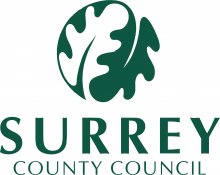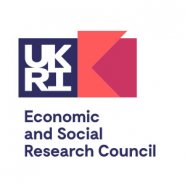
Greening Southway
Start date
01 August 2021End date
30 September 2021Overview
This ESRC IAA project explored ways in which the Southway area of Guildford can be improved.
The residential area of north-west Guildford suffers from high volumes of commuter traffic, issues with parking and very poor air quality at peak traffic times, particularly at the western end. It contains locations that have some of the worst scoring indices of deprivation within the UK.
The University of Surrey has been engaging with these communities over a number of years, to identify ways in which it can offer support. Two years ago Professor Paul Krause and colleagues started an umbrella project, NW Guildford 2030 to engage with key stakeholders in the region, identify what matters most to them in rebuilding a thriving sense of place, and build a portfolio of research projects that can directly help them.
Environment and green space came up as priorities amongst all age groups in the community from high-school students to senior citizens and it is felt that enhancements to green infrastructure have the highest potential payback for quality of life. As a result of this, they initiated a “Greening Southway” community engagement project to focus initial activities in.
This short ESRC IAA funded element of Dr Ratcliffe’s work centred on a series of interviews with residents/local stakeholders, analysing questionnaires and interviews and working with the local stakeholders to identify a small number of feasible interventions that could enhance the quality of life for residents and users of the Southway area.
Although the team couldn't fund infrastructural improvements in the area, they could advise and facilitate and the main goal in this two-month project was to work with the community to help them identify some realistic improvement opportunities.
United Nations Sustainable Development Goals
This collaboration is part of Surrey’s work to support the following United Nations Sustainable Development Goals:
11 - Make cities and human settlements inclusive, safe, resilient and sustainable
17 - Strengthen the means of implementation and revitalize the Global Partnership for Sustainable Development.
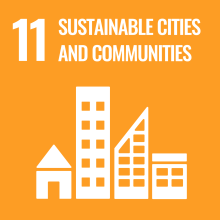
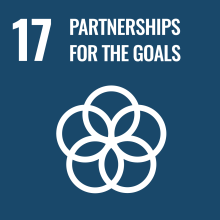
Team
Principal Investigator

Dr Eleanor Ratcliffe
Senior Lecturer in Environmental Psychology
Biography
My research mainly concerns restorative environments, or places which help people to recover psychologically from stress and/or cognitive fatigue. I focus particularly on sensory aspects of these environments (e.g., sounds and soundscapes) and on how bonds between people and place can enhance links between environment and wellbeing. I completed my PhD at Surrey in 2015, followed by two periods of postdoctoral research (2015-2017 at Tampere University, Finland, and 2017-2018 at Imperial College London), before returning to Surrey in January 2019.
Co-investigators
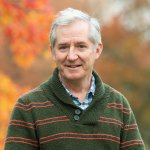
Professor Paul Krause
Emeritus Professor
Biography
Background
I graduated in 1977 with First Class Honours in Pure Mathematics and Physics from the University of Exeter. Following that I studied for a PhD in Geomagnetism under Geraint Rosser at the same university.
During my career I have worked at three internationally leading independent research laboratories:
- The National Physical Laboratory (1980-87);
- The Imperial Cancer Research Fund (1989-1996);
- Philips Research Laboratories, UK (1996-2003).
I greatly enjoyed my seven years at the National Physical Laboratory, working with some dedicated and highly talented scientists. At the end of those seven years I had achieved an order of magnitude improvement of the repeatability of the josephson voltage standard, with also a significantly improved ease of use and reduction in liquid helium consumption when performing the measurements. However, although quantum metrology is a fascinating area, I could not see any potential for significant advances in the underlying physics, so I went for a change.
Theory and practice of artificial intelligence
I started by working for two years at the University of Surrey within their Formal Methods of Software Engineering Group. What I actually did was more in the line of automated theorem proving, spending my time working with Ron Knott on using Prolog to automatically generate behaviours implied by system specifications written in set theory and formal logic. Specification verification tools are way ahead if that now, but it was a fun introduction to the challenges of building automated reasoning systems. Incidentally, Ron is still maintaining the longest running website on recreational mathematics.
I moved on to the Imperial Cancer Research Fund (now Cancer Research UK) in 1989 to work on automated decision making and diagnosis for health care. We were typically looking at non-classical logics and symbolic reasoning in order to make the "arguments" supporting candidate decisions explicit. This lead to some of the earliest published work on computational models of argumentation; an area of research that has grown significantly since those days. Our own work defined a category theoretic semantics for our model of argumentation. We had very extensive collaborations across the research community in models of decision making and reasoning under uncertainty, and my introductory (and very successful at the time) text book with Dominic Clark on Representing Uncertainty, an AI Approach spun out of that.
After seven years at ICRF it was, of course, time to move on again. I took up a post at Philips Research Laboratories, Redhill, to work as a Principal Scientist within Paul Gough's Software Engineering and Applications research group. Sounds a bit like a change of topic, but was not in fact. Machine automation and reasoning were still key here: "robots" to automate the testing of consumer products; semantic reasoning to automatically generate links between entities in hierarchies of documents; bayesian models for software quality assessment. The last of these initiated a long standing collaboration between myself, and Norman Fenton and Martin Neil at City University and Agena Ltd.
2001 saw me moving to a joint appointment with Philips and the University of Surrey, with the aim of strengthening collaboration on computer science research between the two organisations. Sadly, the end of 2001 saw the beginning of the end of Philips Research's once world class research laboratory at Redhill. Promotion to Senior Principal Scientist was a short lived pleasure, but a climax to a wonderful time at Philips. As the research laboratory was gradually wound down, so I progressively moved to full time at the University of Surrey from the beginning of 2003.
Of course, a big difference between industry-focused research laboratories and an academic department is that in academia one is not constrained to work within defined remits of a specific industry sector (although both NPL and Philips Research at their best did indeed support a level of blue sky research). So the move to academia did of course give me more freedom in my trajectory. Despite the recent high-profile successes in AI, I believe there are some major challenges. Two key ones for me are: explainability/accountability of AI supported decision making; and, bias.
Addressing the former issue has been a major influencer of the approaches I have taken. Going back to our work on toxicological risk prediction with Lhasa Ltd, for the pharmaceutical industry an ability to classify novel chemical compounds according to potential risk classes had little value unless the reasons ("arguments") for those classifications were made explicit to the analysts. Moving on to more recent work, my work with Nick Ryman-Tubb during his PhD and subsequently is showing that 20 years' research on fraud detection in academia has not resulted in any significant advances when assessed according to industrially relevant metrics [Ryman-Tubb, Krause and Garn, 2018]. We have also shown <<citation pending>> that unless there are significant changes to the regulatory environment, the financial sector will simply continue to consider the current level of fraud as an acceptable cost of business - with no account being taken that fraud is in effect a multi-billion dollar industry that is funding terrorism and organised crime. The research challenge is to build AI/data analytic tools that help us gain understanding of the fraud vectors themselves, and also explicate the real impact of this level of crime to help facilitate change to the status quo.
The issue of bias is pernicious in AI. The problem here is that, obviously, the models are only as good as the data they are trained on. Never mind the irritation of an e-commerce recommending you products that are way off topic for your specific personality. More critical is the potential risk for a health care advisor to judge a health care scenario on the basis of a data set that has been obtained from a predominantly middle class western population. Within that population there will be ethnic groups that will have had little representation within the training sets. Even worse, there may be pressure to apply such a model on a global basis to populations that have absolutely no representation in the training of the model.
This is a real challenge in academic research as it is so hard to spend the length of time needed to collate, gain regulatory approval and quality check high quality data on a global basis. However, we are making progress on this and for the last two or three years I have been supporting Lilian Tang's work on diabetic retinopathy in collating extensive retinal image sets from disparate regions across the globe [Lutfiah Al Turk, Paul Krause, Su Wang, Hend Alsawadi, Abdulrahman Zaid Alshamrani, Tunde Peto, Andrew Bastawrous, and Hongying Lilian Tang, Automated Progression Analysis Across Three Nations, to be submitted].
Deep Learning has had a lot of successes. There is so much hype around it that it almost seems that the public eye is equating deep learning with AI. But simply thinking that throwing massive data sets at smart algorithms will generate knowledge is a big mistake. Our group's work on diabetic retinopathy, the projects mentioned above, and others, support the conviction that we must still support human-machine co-creation of knowledge. Big data sets, and smart algorithms are necessary, but they are not sufficient for the generation of machines that demonstrate "intelligent" problem solving. Now, working collectively within the NICE group in the Department of Computer Science here at Surrey, we are building out a suite of capabilities that will continue to help us build machines that can communicate and collaborate with human beings to solve complex problems. Consider, for example, the urgent need to gain deeper understanding of the links between biodiversity and the provision of ecosystem services. With Alireza Tamaddoni Nezhad, we have capability for mining ecological networks using Inductive Logic Programming and Meta-heuristic reasoning. Through Sotiris Moschoyiannis, we have an emerging toolset for the identification of the system levers or “drivers” which have high influence on the overall system behaviour. Yunpeng Li now strengthens our Bayesian analytic capability; still a powerful method for ensuring assumptions are correctly captured when reasoning with complex data sets. André Grüning gives further support on techniques for driving dynamical systems into preferred states, perhaps using reinforcement learning to identify interventions to transition a degraded ecological network into one offering enhanced functionality and resilience.
I fundamentally do not believe we can learn how to maintain a human presence in the stunningly beautiful biosphere that we are blessed with, without a richer suite of tools from AI -- and ones with which we can co-create knowledge and understanding. We won't survive on this world without them. But, of course, the world may well survive without us...
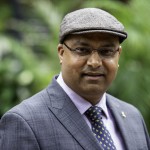
Professor Prashant Kumar
Co-Director, Institute for Sustainability, Professor and Chair in Air Quality and Health; Founding Director, Global Centre for Clean Air Research (GCARE)
Biography
Prof Kumar is a founding Co-Director of the pan-university Institute for Sustainability, Professor & Chair in Air Quality and Health, and founding Director of the internationally-leading research centre Global Centre for Clean Air Research (GCARE) at the University of Surrey, UK. He is the founder of successfully running Guildford Living Lab, a Trustee at Zero Carbon Guildford (ZERO), an Adjunct Professor at Trinity College Dublin, Ireland; and a Guest Professor at Southeast University, China.
He joined the Senior Leadership team of the Faculty of Engineering and Physical Sciences as an Associate Dean (International) in 2020 and subsequently took up another senior leadership role to help setup the new pan-University Institute for Sustainability as a founding Co-Director in 2023. As an Associate Dean (International), he worked on implementing the University's Global Strategy and provided leadership to the international agenda, including student recruitment, transforming the PGR international placements through Turing and other mobility schemes, building several successful international research partnerships, coordinated numerous UG and PGT partnerships and joint PhD programmes, and led the QS submission for the University as a 'QS Impact Champion'.
Earlier, he served as a Reader (2015-2017), Senior Lecturer (2012-2015) and Lecturer (2009-2012) before promoting to Chair and Full Professor of Air Quality and Health (2017-) at the University of Surrey. He was the Deputy Director of Research for the Department of Civil & Environmental Engineering during 2018-2021.
An engineer by training, Prof Kumar obtained his PhD (Engineering) from the University of Cambridge (UK) after winning a Cambridge-Nehru Scholarship and Overseas Research Scholarship award. He earned his Master's Degree in Environmental Engineering & Management from the Indian Institute of Technology, Delhi, where he won the ‘Outstanding Postgraduate Student Award’ for his exemplary performance (CGPA 9.8/10 and rank 1). Prior to his PhD, he worked in the construction industry and a CSIR Research Institute for about 7 years.
Prof Kumar has won numerous prizes and awards in recognition of his academic and research excellence throughout his study and academic career. Consequitively in 2022 and 2023, he was bestowed with the global accolade of being recognised in the top 1% of ‘Highly Cited Researchers’ by Clarivate. The award reinforces Prof. Kumar’s ‘significant and continued broad’ contribution across scientific fields as one of the world’s top-cited researchers in Web of Science. He was the winner of the University of Surrey’s Vice-Chancellor award ‘Researcher of the Year’ in 2017. His research on air pollution reduction through green infrastructure earned him the 2023 Haagen-Smit Prize for Best Paper.
Professor Kumar was honoured by the California Air Resources Board with the prestigious 2023 Haagen-Smit Clean Air Award - an accolade regarded as the 'Nobel Prize' for air quality achievements - for his "transformative contributions, widespread impacts, novel accomplishments, and exceptional leadership and achievements in this field".
His fundamental and application-oriented cross-disciplinary research is focused on the interfaces of clean air engineering, human health and smart/sustainable living in cities/megacities. His current research projects are focused on broad multidisciplinary areas of air pollution monitoring/modelling, low-cost sensing, nature-based solutions, climate change mitigation and developing innovative technological and passive (e.g. green infrastructure) solutions for air pollution exposure control for both developing and developed world. He is currently the lead PI on the UKRI (EPRC, NERC, AHRC) funded RECLAIM Network Plus.
In response to the global public health crisis, Prof Kumar played an active role in the clean air community. He participated in the Royal Society Rapid Assistance in Modelling the Pandemic (RAMP) volunteer initiatives and was part of an international effort making a case to the WHO for the recognition of airborne transmission. Among others, his team studied the impact of lockdown on air quality in different cities, including ODA countries, and how different types of face masks can offer protection from the infection of SARS-CoV-2 in public built spaces.
A prolific author with over 400 journal articles (and the same number of conference presentations and articles), his research has attracted over 27,000 citations, with an h-index of 80 (i10-index, 338). These include several highly downloaded, cited and almetrics articles, new directions around air quality challenges, wood burning, climate change and cities, and agenda-setting papers in the area of low-cost sensing, green infrastructure design, ultrafine particles, non-exhaust emissions, smart homes, nature-based solutions and particles and policies.
He has secured over £14M of individual research funding from projects total worth over £30M, funded by the RCUK (e.g, EPSRC, ESRC, NERC, AHRC, MRC, HEFCE, British Council, Innovate UK, Research England, GCRF), industry, international funding bodies (e.g., European Commission, Qatar National Research Foundation, Commonwealth Commission, FAPESP) and charities (e.g. Ove Arup Foundation, RSA, Impact on Urban Health, Global Action Plan).
He serves on editorial boards of several international journals (e.g. Scientific Reports) and scientific evaluation panels of numerous funding agencies. He is Editor-in-Chief of the air quality section of the ‘Atmosphere’ journal (since July 2020) and founding Speciality Chief Editor of the ‘Climate Change & Cities' section of Frontiers in Environmental Science journal. He serves the editorial board of several reputed journals (e.g. Scientific Reports) and is Editor-in-Chief for the ‘Atmosphere’ journal (since July 2020) and founding Speciality Chief Editor of the ‘Climate Change & Cities' section of Frontiers in Environmental Science journal.
He is a reviewer and advisor to scientific evaluation panels of numerous funding agencies in the UK (e.g. NERC, EPSRC) and outside (e.g. Austrian Science Fund) and sits on the scientific advisory board of a number of companies. He advises local councils, and national and international governmental bodies on air pollution and urban nexus.
He has developed a network of collaborators across four continents. His research has featured regularly in well-read media outlets such as the BBC and The Times. Further information on his work can be found on the GCARE website.
Research Assistant

Alina Husain
Research Assistant
Our partners
This ESRC IAA funded project is a collaboration between The University of Surrey, Surrey County Council, Guildford Borough Council, and Park Barn Westborough Community Association
Impact
Once they have identified and prioritised improvements in collaboration with the community, the team will assist in the preparation of two submissions for funding – one for continued and more substantial support from the University and one to fund the interventions.
For this specific two-month project, the team aimed for three core results:
- The co-creation of a documented shared vision for Southway
- A measurable increase in the level of engagement with the community
- Submission of two funding proposals as specified above.
This project was considered to be an important vehicle for both demonstrating the value of the University of Surrey's Environmental Psychology and its related research.
It aimed to build a relationship between the social sciences researchers and those working on data science, sensor technology and Internet of Things because these technologies may be used to demonstrate the relationship between measurable environmental factors such as air quality and enhanced feelings of well-being.
The project showcased the relevance of the team's work to the wider community by showing how research can be used to evidence and strengthen support to empower the community in their ambitions to enhance their environment and sense of place.
Impact Acceleration Account awarded projects
Our projects are all playing their part in turning social science research outcomes into meaningful impact that will touch our lives and communities.
